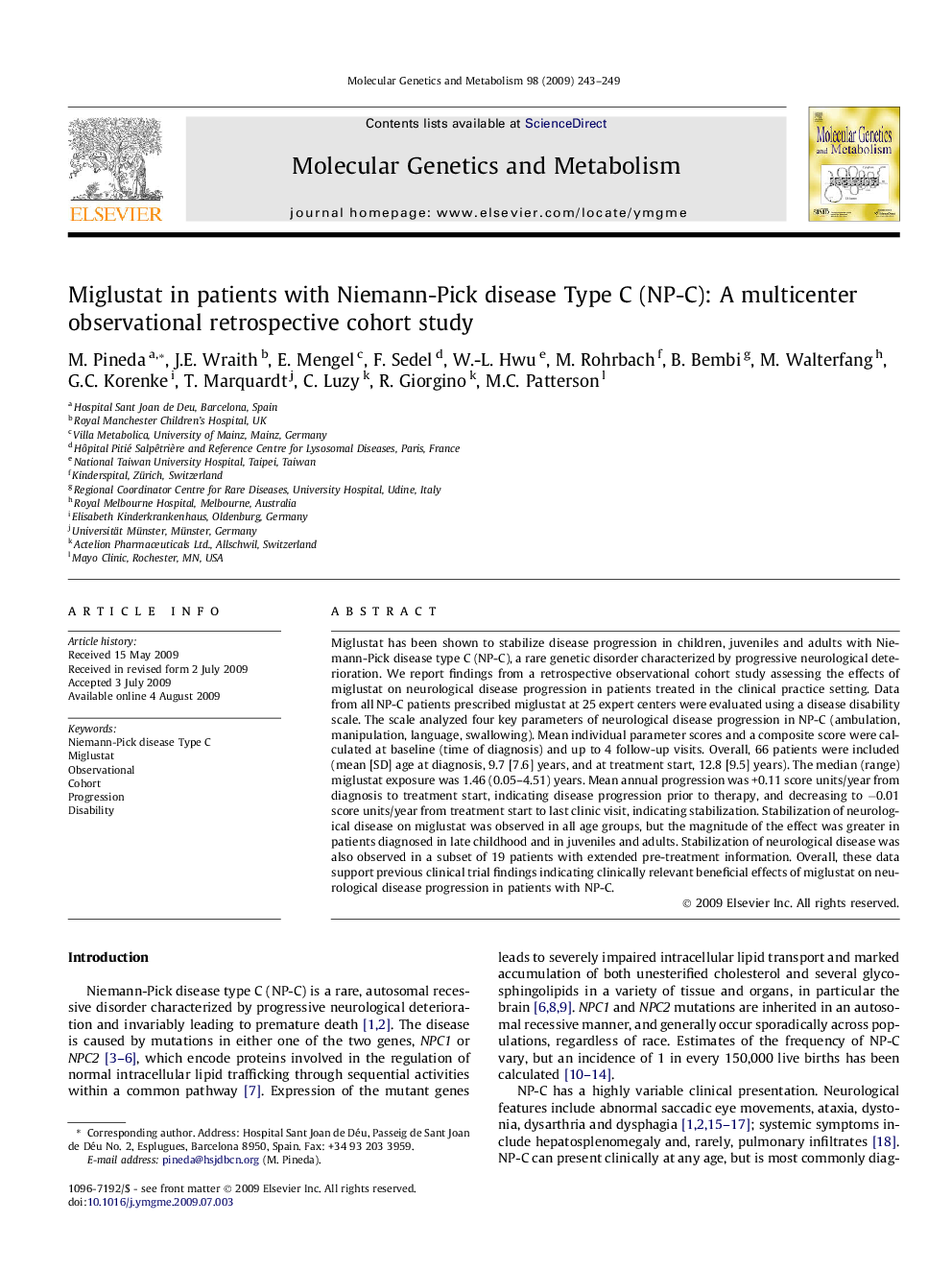| Article ID | Journal | Published Year | Pages | File Type |
|---|---|---|---|---|
| 1999779 | Molecular Genetics and Metabolism | 2009 | 7 Pages |
Miglustat has been shown to stabilize disease progression in children, juveniles and adults with Niemann-Pick disease type C (NP-C), a rare genetic disorder characterized by progressive neurological deterioration. We report findings from a retrospective observational cohort study assessing the effects of miglustat on neurological disease progression in patients treated in the clinical practice setting. Data from all NP-C patients prescribed miglustat at 25 expert centers were evaluated using a disease disability scale. The scale analyzed four key parameters of neurological disease progression in NP-C (ambulation, manipulation, language, swallowing). Mean individual parameter scores and a composite score were calculated at baseline (time of diagnosis) and up to 4 follow-up visits. Overall, 66 patients were included (mean [SD] age at diagnosis, 9.7 [7.6] years, and at treatment start, 12.8 [9.5] years). The median (range) miglustat exposure was 1.46 (0.05–4.51) years. Mean annual progression was +0.11 score units/year from diagnosis to treatment start, indicating disease progression prior to therapy, and decreasing to −0.01 score units/year from treatment start to last clinic visit, indicating stabilization. Stabilization of neurological disease on miglustat was observed in all age groups, but the magnitude of the effect was greater in patients diagnosed in late childhood and in juveniles and adults. Stabilization of neurological disease was also observed in a subset of 19 patients with extended pre-treatment information. Overall, these data support previous clinical trial findings indicating clinically relevant beneficial effects of miglustat on neurological disease progression in patients with NP-C.
